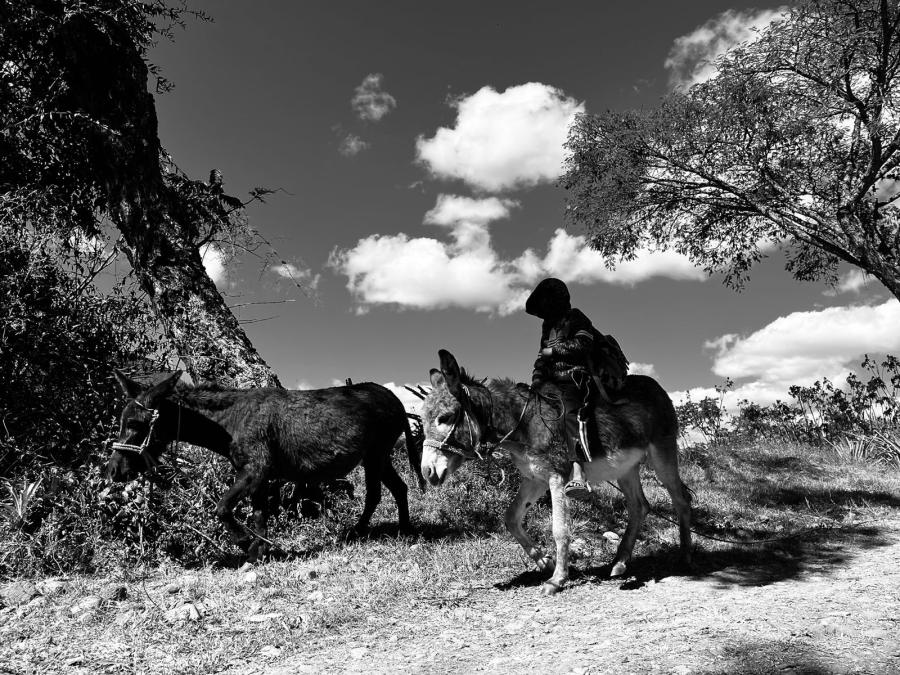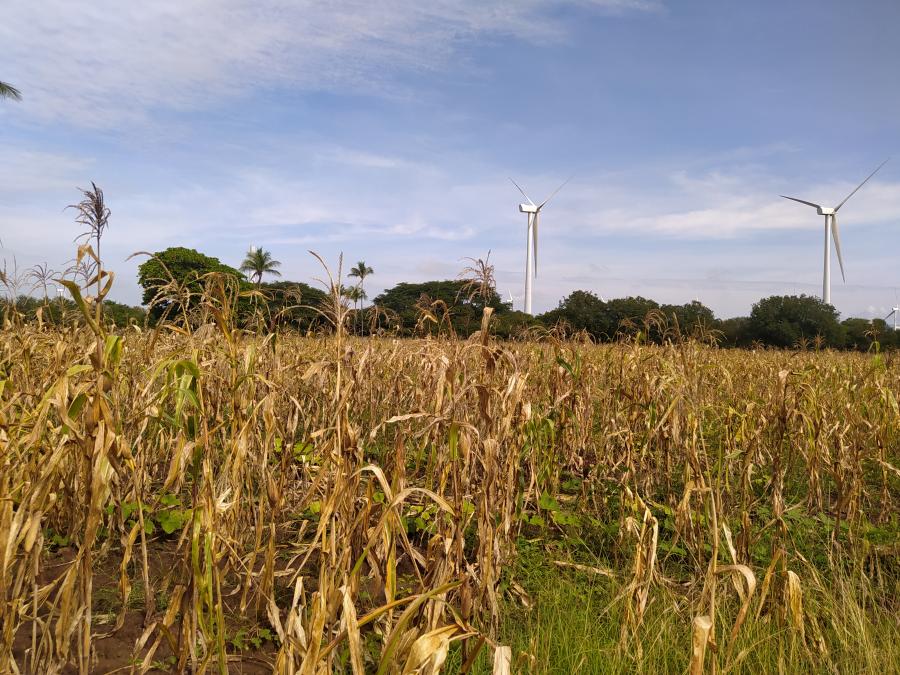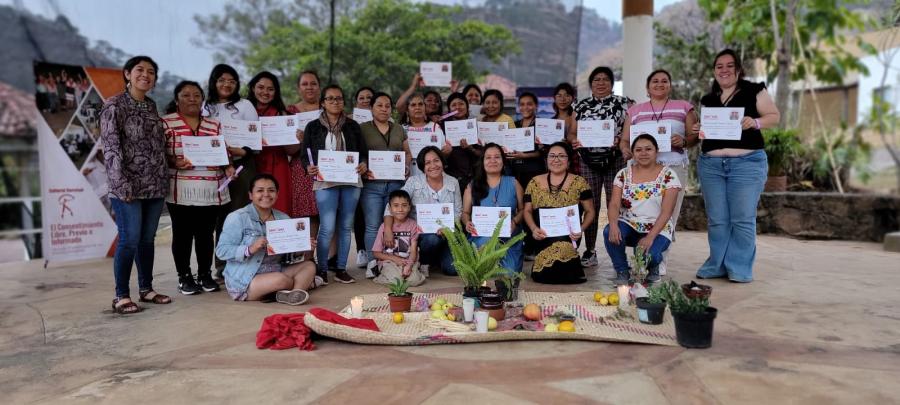The Northeast Sierra of Puebla is home to one of the most fruitful Indigenous movements in Mexico. Since 2012, this region has been characterized by the struggle against extractive industries which deprive Indigenous Peoples of their territories. Those who are familiar with the history of Mexico and the historical role played by Indigenous Peoples will understand that resource extraction is a continuation of exclusion. Currently, campesino and Indigenous organizations are defying history and presenting alternatives for life rooted in their own visions.
Radio Tsinaka, Cultural Survival’s 2018 Community Media Grants Project Partner, is an Indigenous community radio station run by young volunteers who have been working in this region for six years. On the air sixteen hours a day, Radio Tsinaka reaches more than 30 Nahua and Totonac communities and its main objective is to strengthen community, and most of its contents is broadcast in the Nahuatl language.
Before Radio Tsinaka was called the Collective Yoltajtol, “It Speaks of the Heart”, a group made up entirely of young people from the municipality of Cuetzalan interested in audiovisual production, started in 2012. Their goal was self-representation in video and audio. Young people have the ability to appropriate spaces and territories, and inspiring new practices, in this case community communication.
Radio Tsinaka is now celebrating six years of broadcasting. During these years it has developed countless projects focused on the revitalization of the Nahuatl language, protecting Indigenous lands, and strengthening cultural identity. As expected, the first young people who started Yoltajtol grew up and were forced by the callings of adult life to dedicate themselves to other activities that would give them financial rewards to support their families. This left Radio Tsinaka with many challenges.
In 2018, Radio Tsinaka went through a process of institutional strengthening where it sought to reorganize as a collective, make better radio productions, and improve the quality of the information it disseminates. More than eight young people joined the team, including Perla Téllez Álvarez, a 16 year-old high school student and radiographer. Below is a recent interview with Téllez.
Why were you interested in participating at Radio Tsinaka?
Perla Tellez Álvarez: I like to paint, draw, and talk a lot. I like to chat with people, make friends. I see a person and I say “I have to know about him/her, to know what he/she has in their mind right now.”
The first interaction with Radio Tsinaka was because a friend encouraged me to come to a story project. Later my mom saw a call for projects in "audiomagazine format" and at first I did not have the intention to participate, until my mother encouraged me. Then I went for this call but also to learn about what they do as I was interested in joining the radio team.
What role do you like to play within the team?
I like to be an announcer and speak. I do not have any formal experience or training but little by little I know what to say and what not to say on the air. Sometimes I have trouble organizing my ideas and expressing them or I miss a word, but. I think I am learning to control my way of speaking. In the near future, I will be able to communicate better with people. I would also like to be a local reporter.
What do you think about the participation of women in radio?
It is a way of empowering women. It shows that we are able to say what we think and that no one can tell us that we are worthless just for being women. We can also encourage other women who do not feel empowered to say “Enough with violence, enough of how they treat me in my house, I'm worthy just like a man!” I believe that the participation of women is very important because we also empower other women who need us, and we together empower ourselves.
What do you think about the participation of young people on the radio?
I think it's essential because we were commenting recently that adultcentrism makes young people not want to participate because they will shut us up and tell us “You have not lived at all.” Maybe we know less, but we do our best to do the right thing and we know we are capable.
Why is Tsinaca Radio important for the community?
As a means of communication, it is our commitment to get information about community organizing or whatever else is happening. It is a way to bring people together who can not be closer, keep them aware of the things that are important for everyone. As we have seen, the radio makes people talk to each other, approaching them in our own language is key.
Do you have any idea that you would like to develop on the radio?
Open spaces where young people can enter, recreational activities that benefit us. A feminist space among young people where we can talk about how to take care of ourselves and how to empower ourselves among ourselves.
As a final message to young people, get involved in local activities. You may might think: “For what reason do I want to go to the radio if it's boring?” But once you enter you see how everything is different and you meet interesting people. On this path, I have met many. I have learned about feminism and it has been an experience that has empowered me. I think we have to encourage young people, women, men, to join, to undertake collective projects. We have the right to communicate, to freedom of expression, and it is important because sometimes we do the opposite, we shut up.



